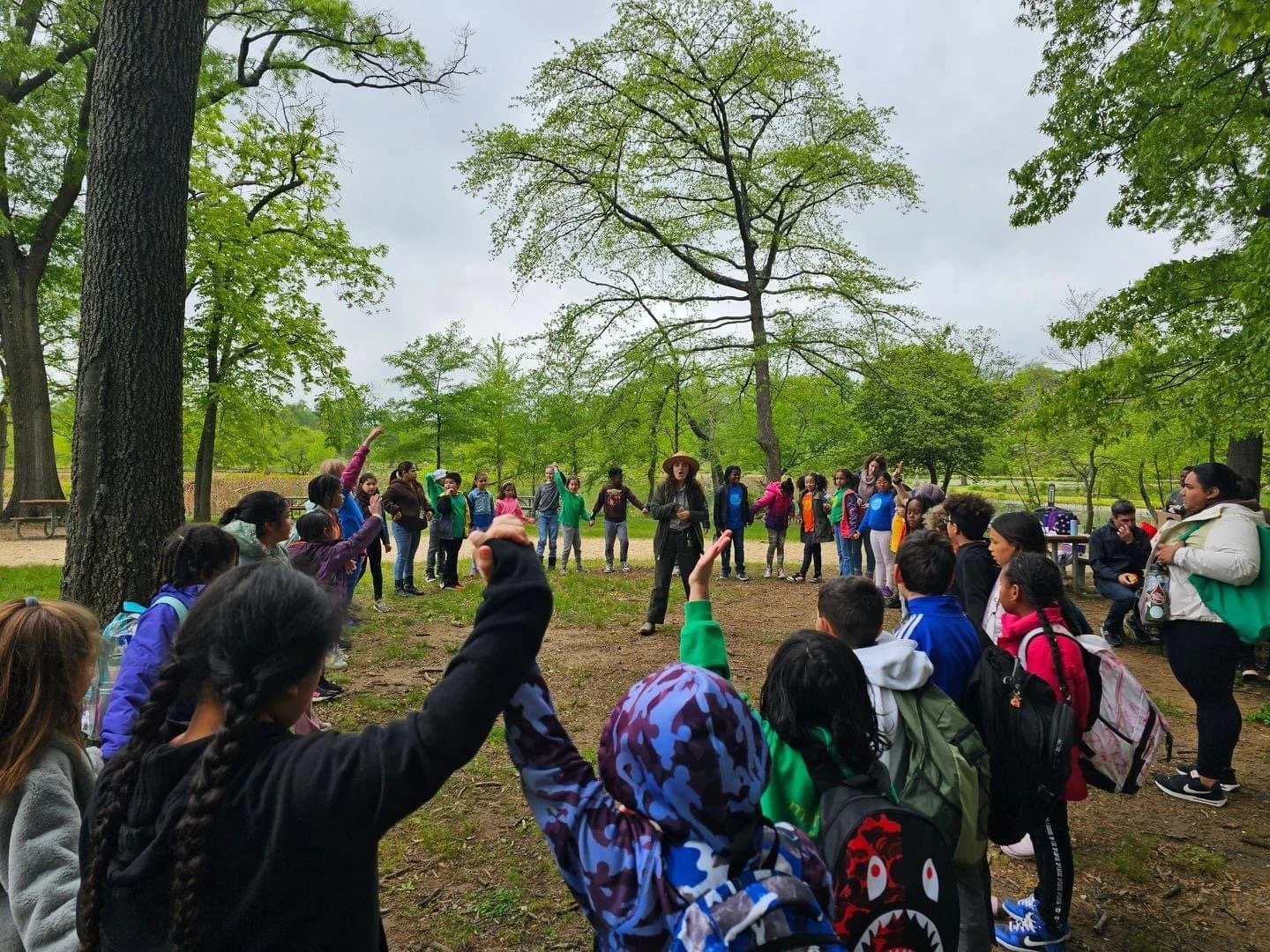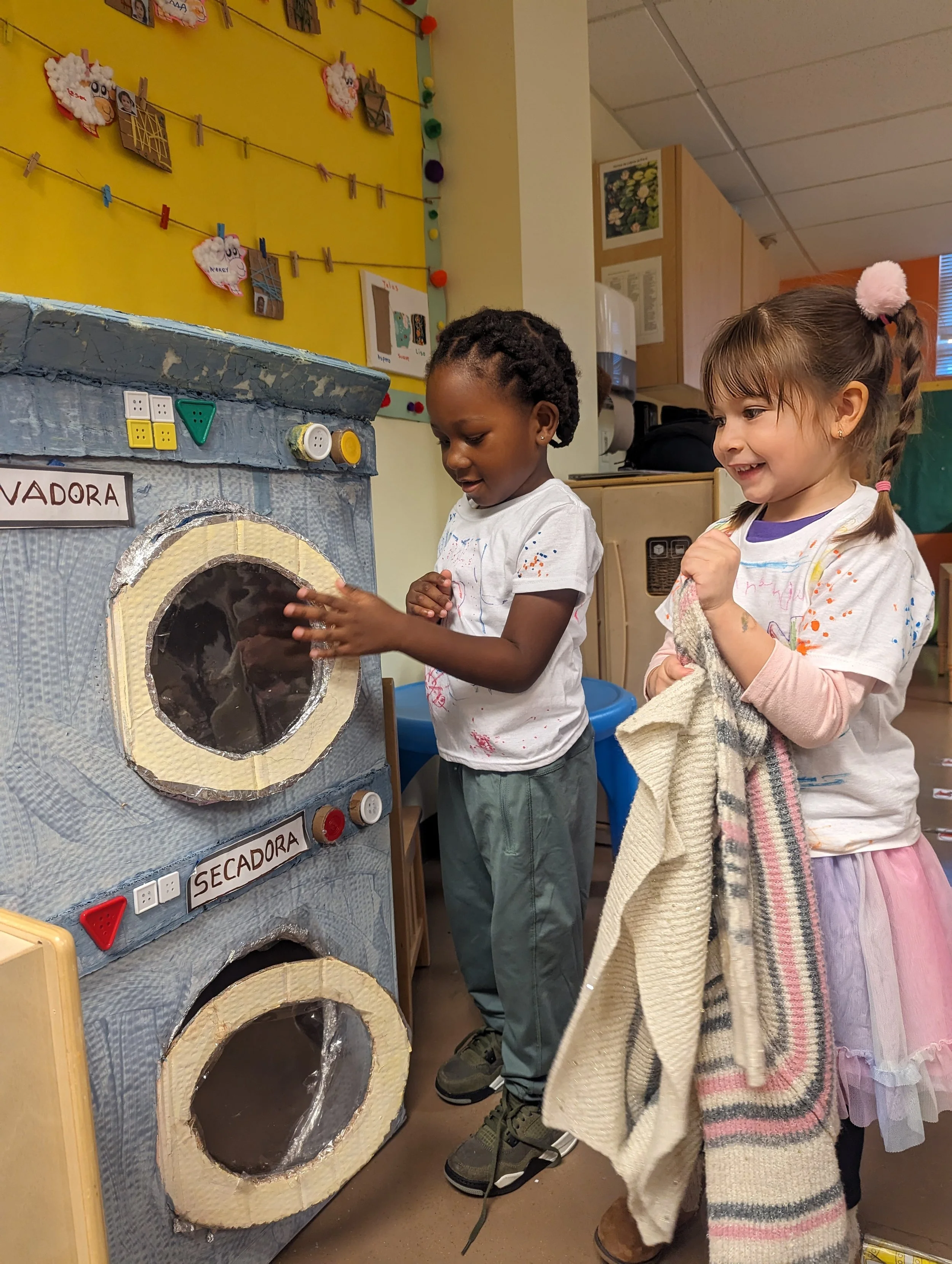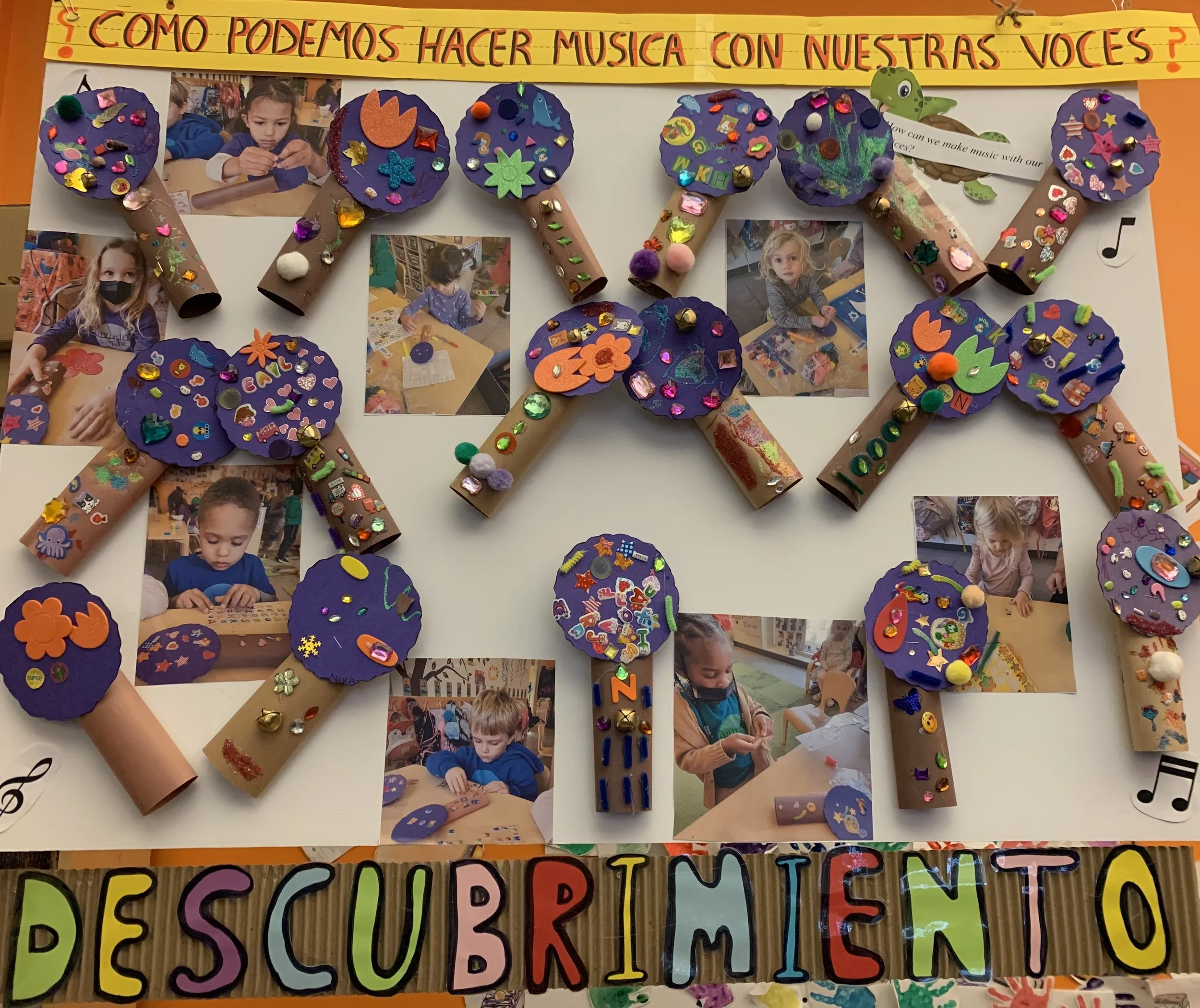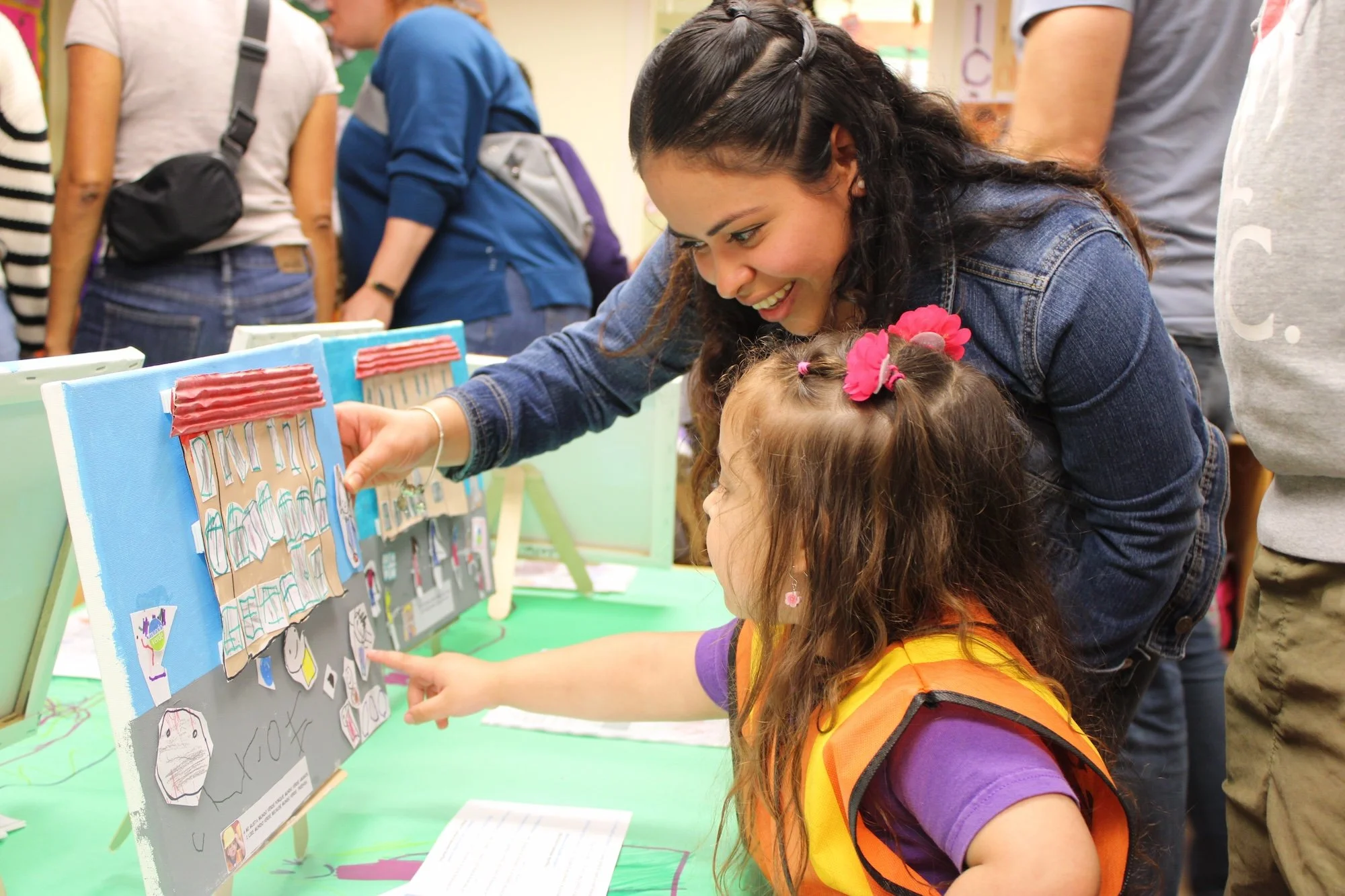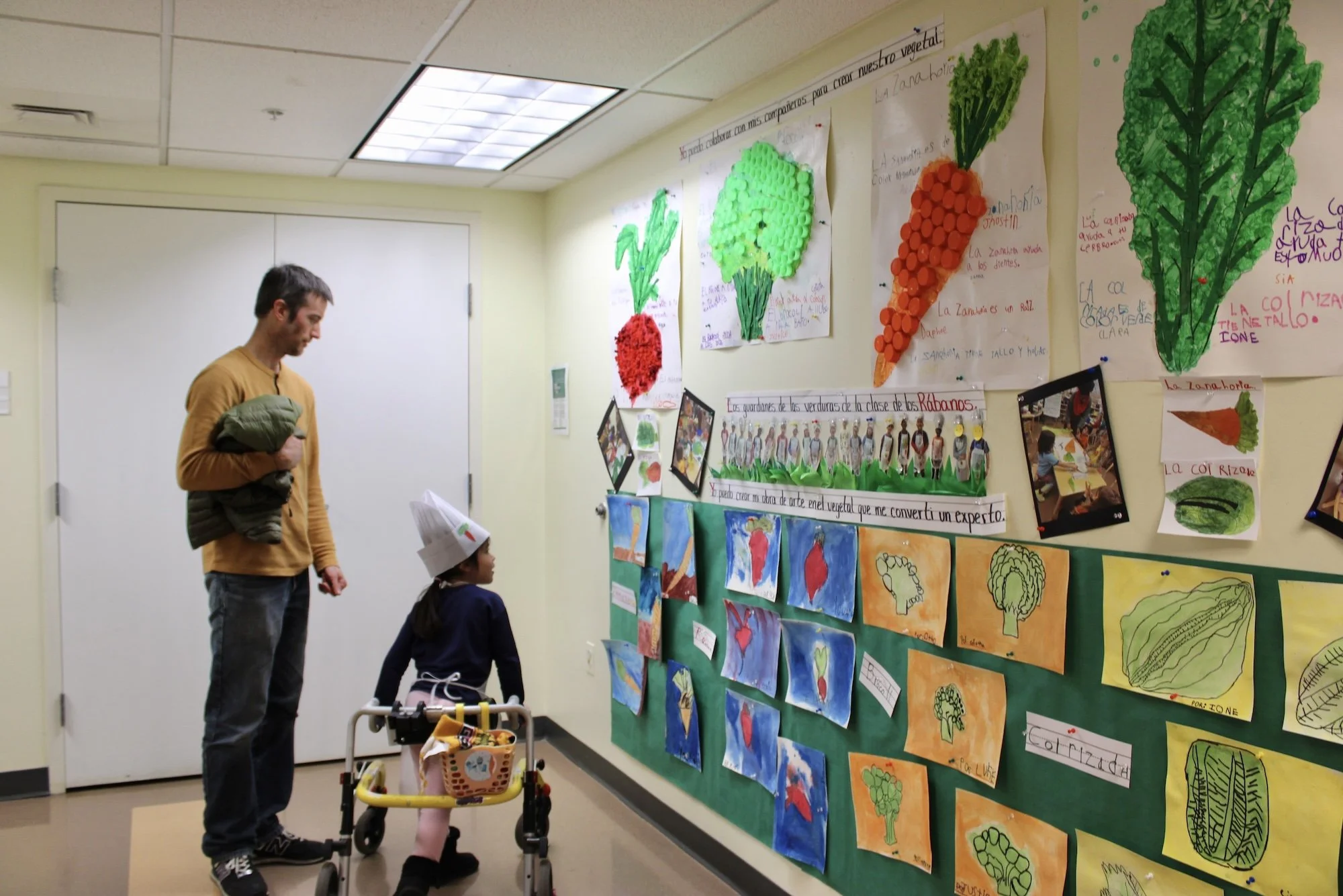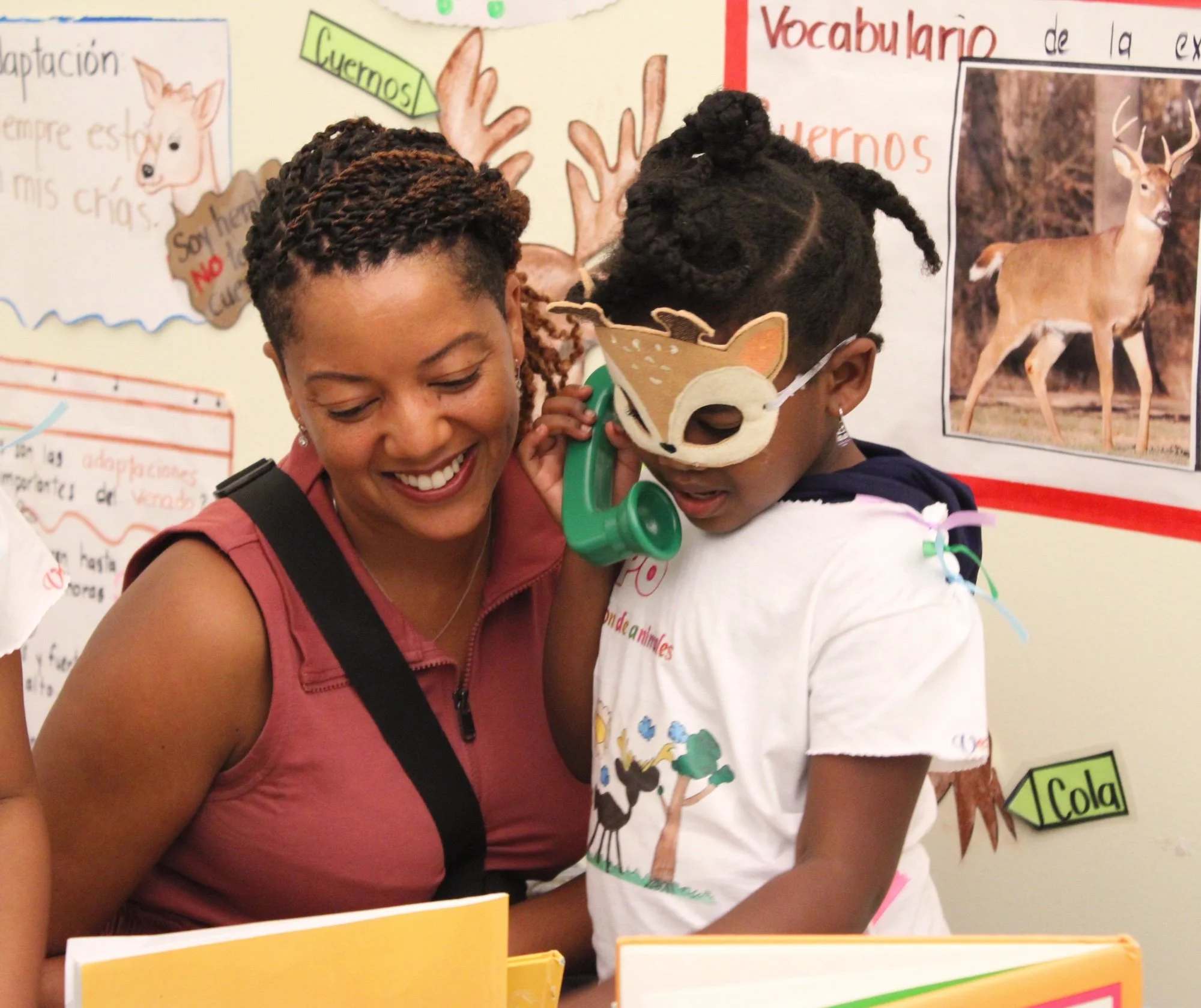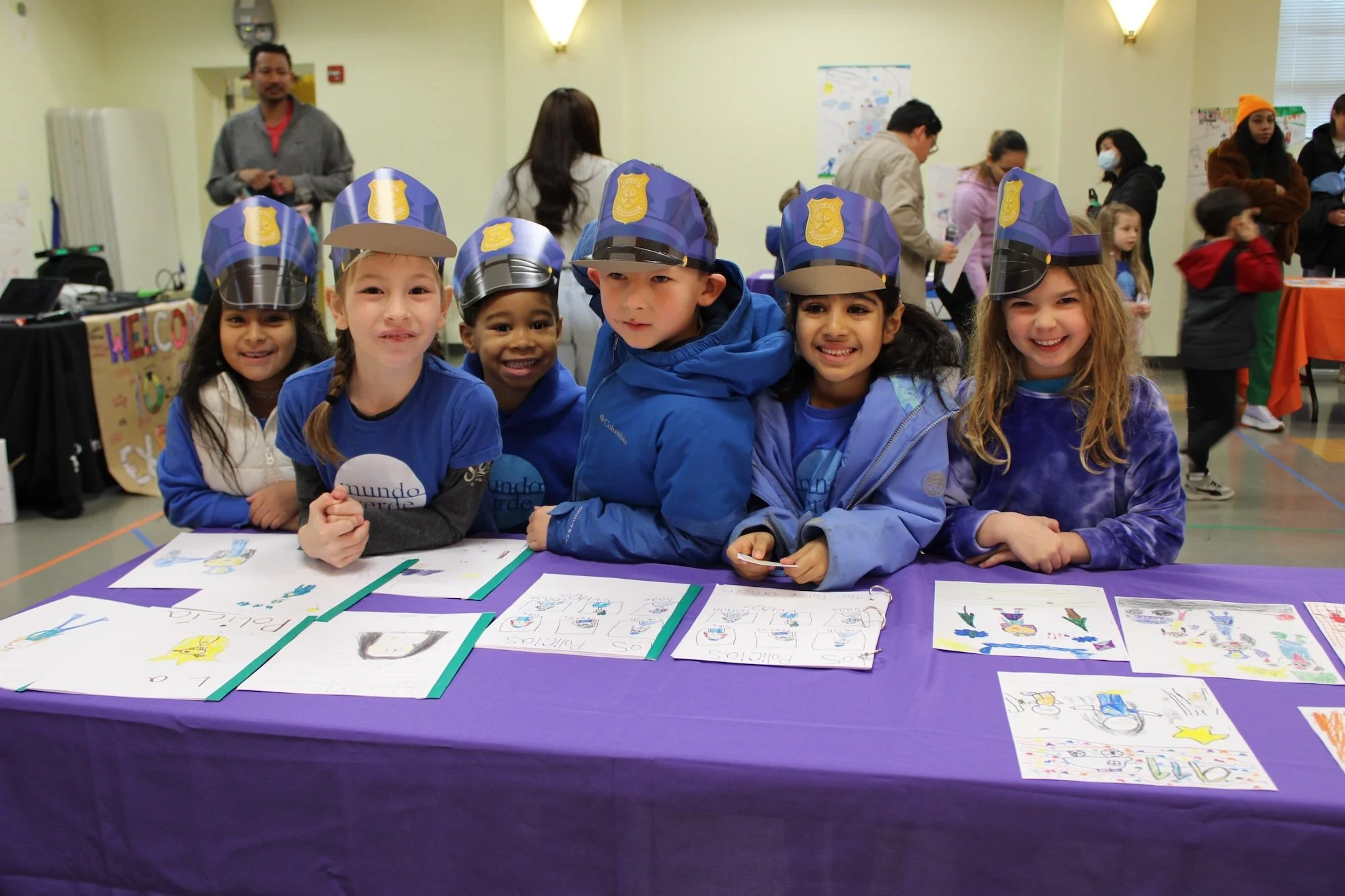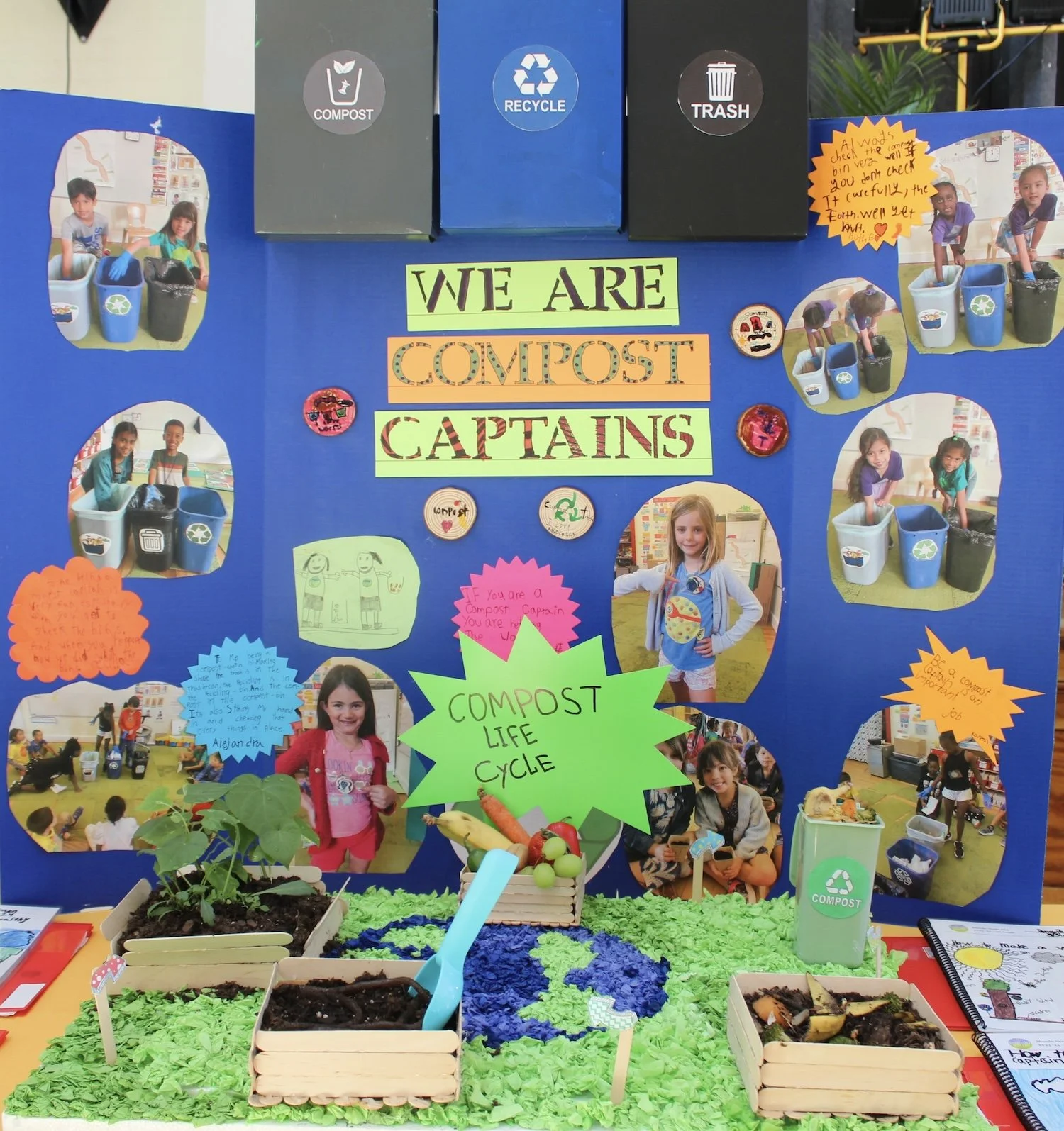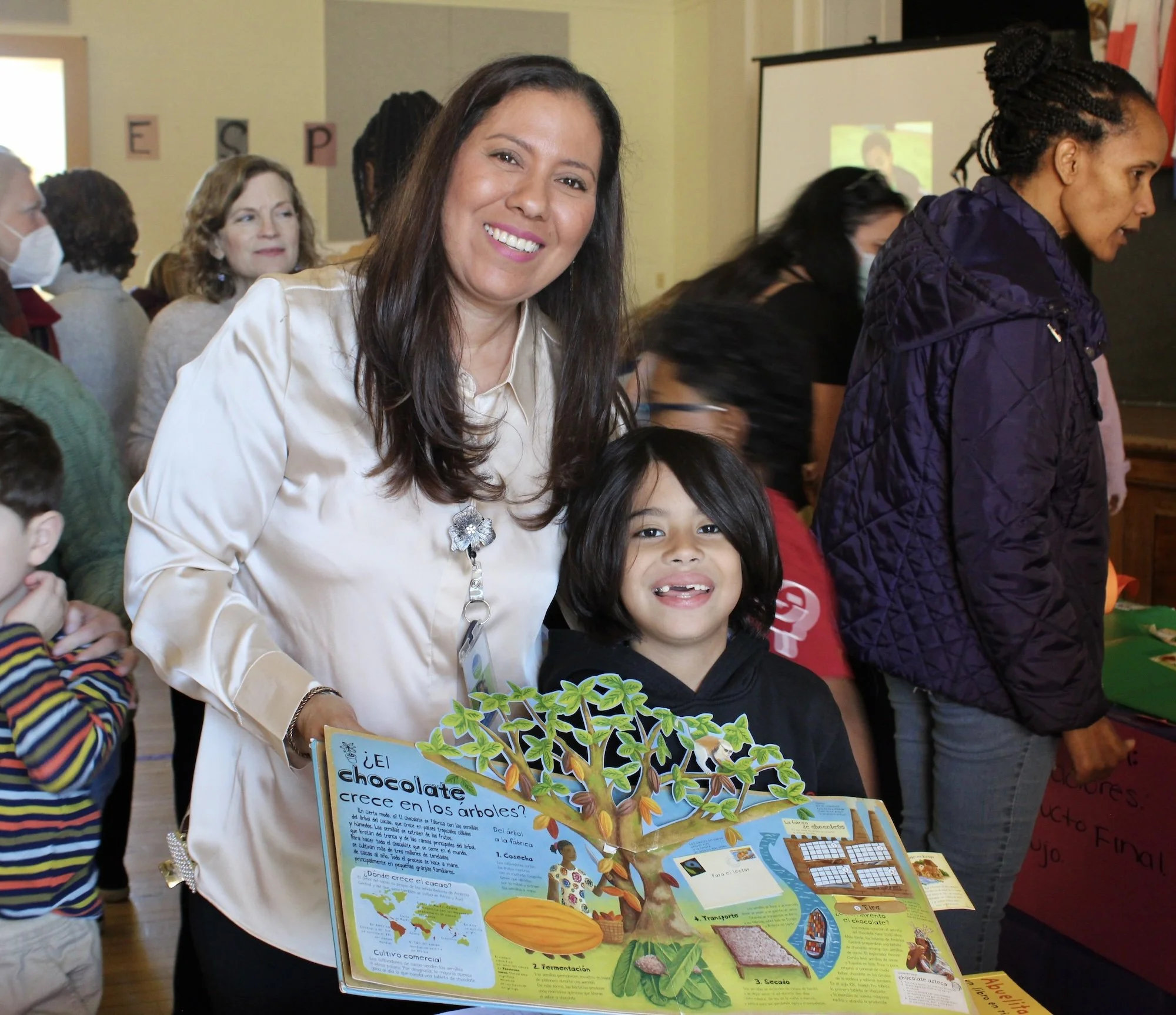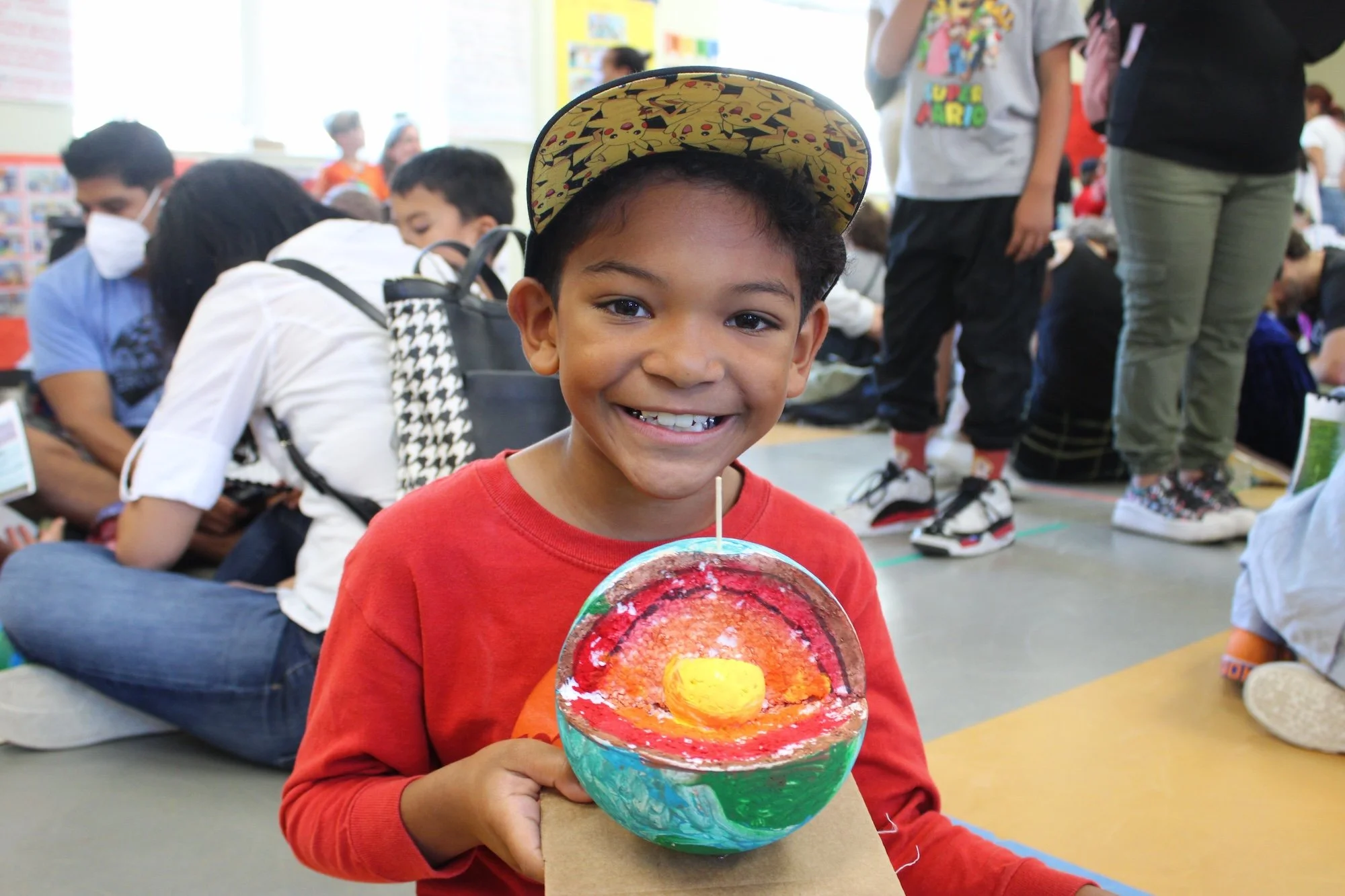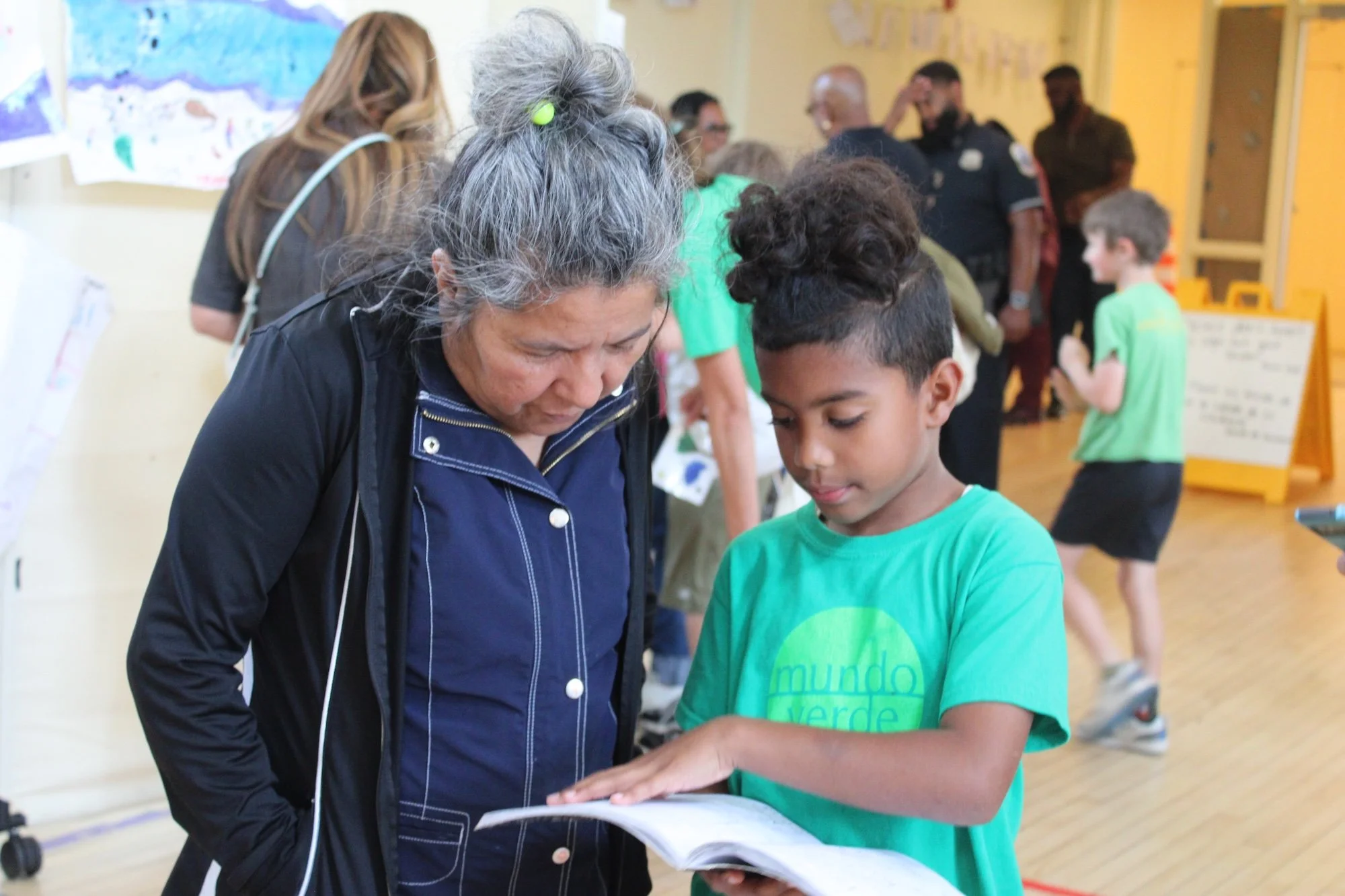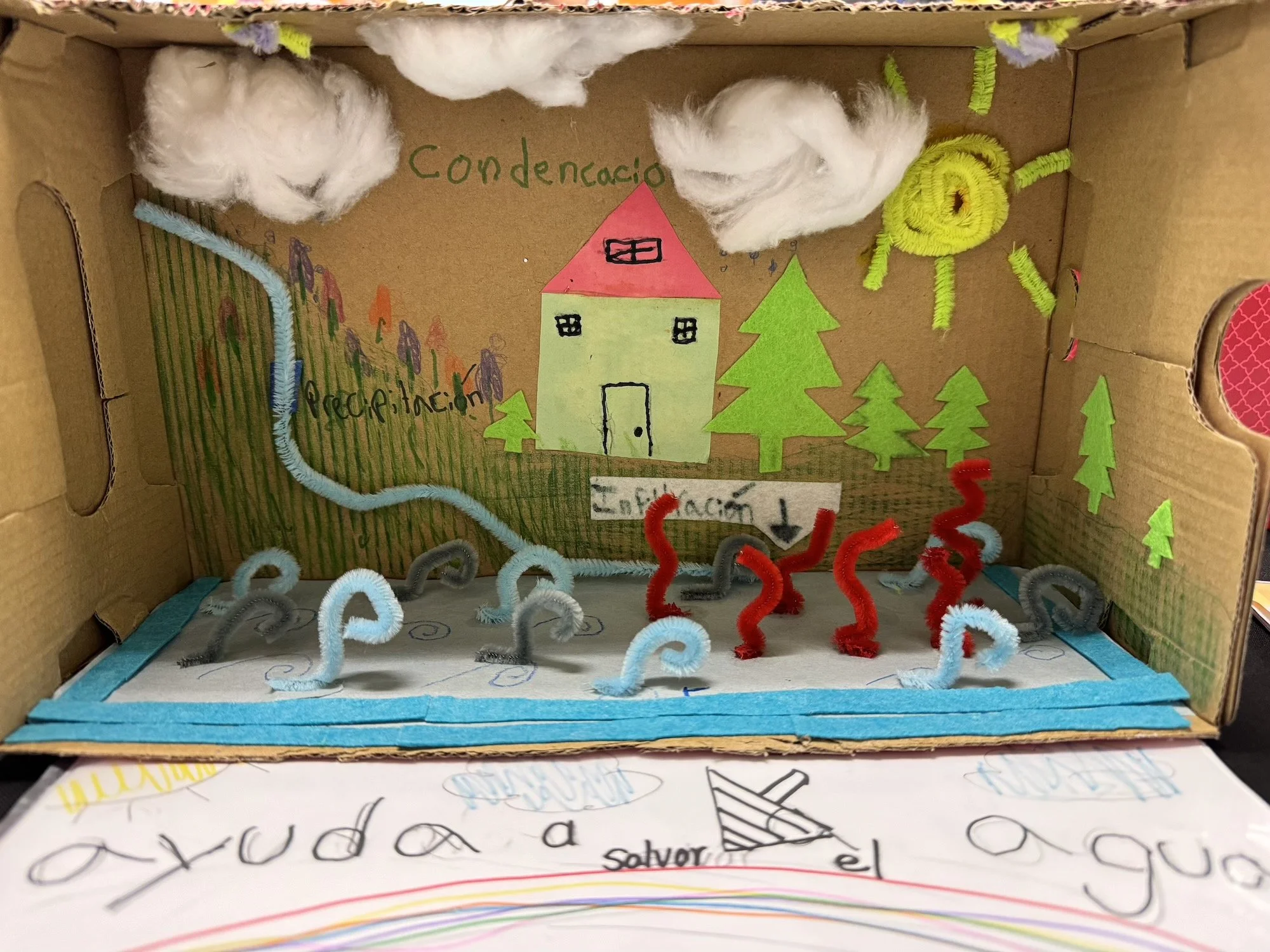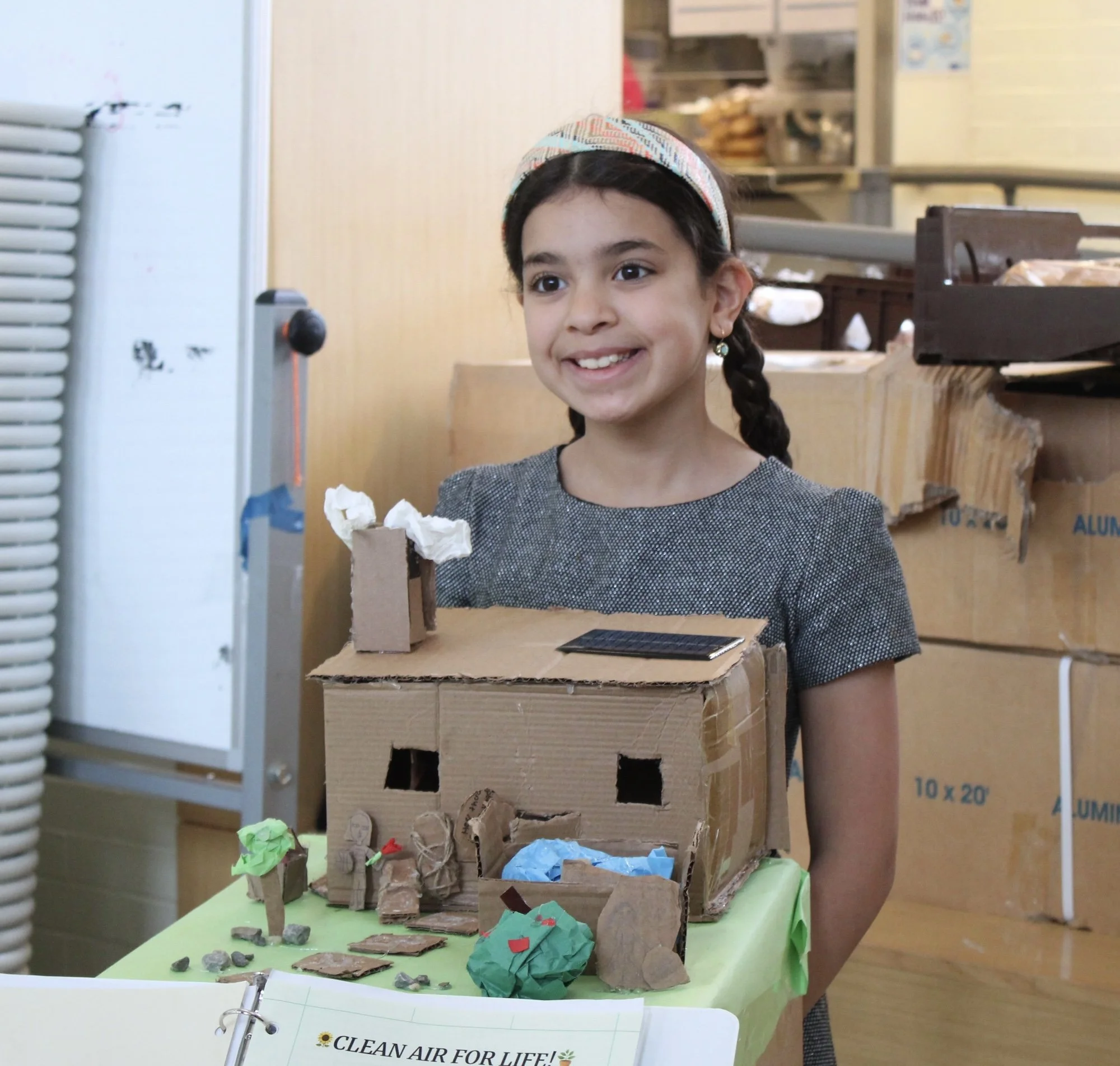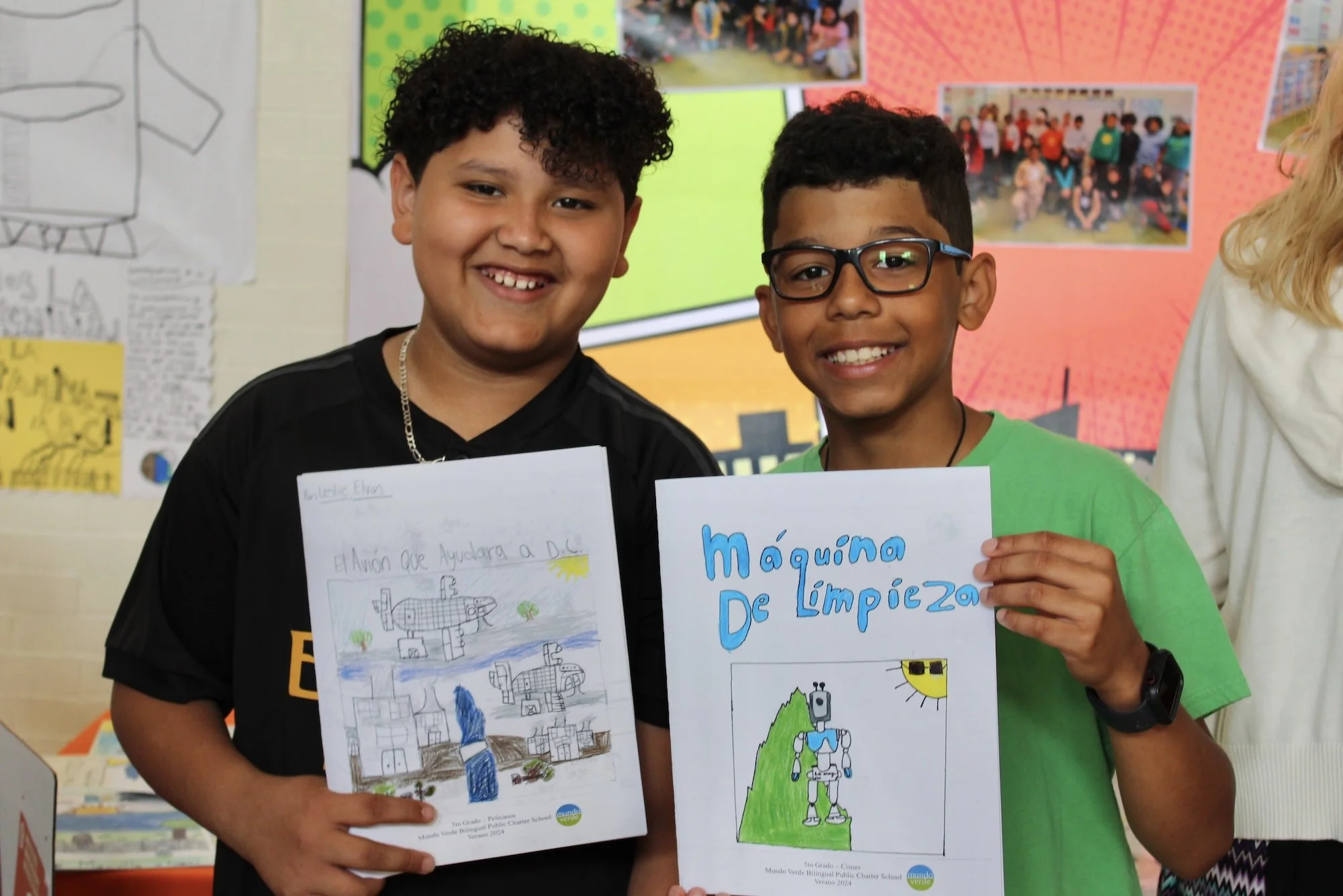Hands-on Learning
Hands-on Learning
At Mundo Verde, we value what children learn and also how they learn. Our curriculum centers around exciting expeditions—long-term, in-depth studies that delve into real-world social studies and science issues. Through expeditions, students connect various content areas, from reading and research to writing and persuasion.
Expeditions ignite curiosity, foster active learning, promote teamwork, and build character, all while tapping into children's natural sense of adventure. They encourage students to make connections, appreciate diverse perspectives, draw conclusions, uncover big ideas, and recognize their connection to the world around them.
At Mundo Verde, students don't just learn from books but also from fieldwork experiences and expert insights. After each expedition, they showcase their knowledge through high-quality projects at Expos. These events go beyond mere displays, encouraging students to reflect, articulate insights, and share accomplishments with family and friends. Students demonstrate their learning through artwork, research, and various projects, surpassing simple grading metrics, using Expos as powerful platforms for idea generation and continuous improvement. As a result, students at Mundo Verde have transformed into restaurant owners, videographers, authors, entrepreneurs, songwriters, advocates for clean water, living history actors and actresses, and more!
For more information about Expeditionary Learning, you can visit eleducation.org.
All Expeditions
Pre-K
** Pre-K classes combine Pre-K3 and Pre-K4 students. To prevent repetition, we rotate four expeditions over the two years they're in Pre-K, ensuring each student experiences new adventures.
Fall: The Clothes
What stories does our clothing tell?
The "Clothing" expedition delves into the significance of clothing, exploring its role as a form of self-expression and cultural identity. Students learn about responsible clothing care and maintenance, gaining insights into the stories garments can tell about individuals and communities.
Fall: The Music
How do we make music together?
In the "Music" expedition, students embark on a journey to explore the diverse world of musical instruments and voices. They discover how the unique sounds of instruments, and voices contribute to the creation of music. Through engaging activities and investigations, students deepen their understanding of music as an interconnected system, where every instrument and voice plays a vital role.
Spring: The Trees
How do trees take care of us and we take care of them?
In the "Trees" expedition, students explore the vital role of trees in our environment, fostering a deeper connection to nature and their surroundings. They learn about the characteristics, functions, and life cycles of trees while observing their presence in various settings, from the schoolyard to national parks. Through hands-on activities and observations, students discover how trees support biodiversity, clean the air, provide shade, and enrich the soil.
Spring: The Buildings
How do buildings and communities shape one another over time?
The “Buildings” expedition invites students to explore the world of architecture and community. Through inquiry-based learning, students investigate the formation of buildings and their intricate relationship with evolving communities over time. From understanding the design and construction of buildings to reflecting on the unique characteristics of their school building, students gain insights into the significance of architecture in shaping our surroundings and fostering a sense of belonging.
Kinder
Fall: Guardians of the Vegetables
What’s up with vegetables?
In the "Guardians of Vegetables" expedition, students immerse themselves in understanding and appreciating vegetables and green spaces. Through hands-on experiences, they develop a personal connection with vegetables, inspiring them to care for and consume them. Emphasizing ecological awareness, students lead initiatives to promote vegetable consumption within the school community, fostering a healthier environment for all.
Spring: Animal Adaptations
Why do animals look the way they look?
The “Animal Adaptations” expedition immerses students in exploring how animals are uniquely adapted to their environments. Through scientific observations, expert interviews, fieldwork, and non-fiction research, students investigate the diverse ways animals survive and thrive in their habitats. This expedition cultivates students' understanding of structural, physiological, and behavioral adaptations, fostering a deep appreciation for the wonders of the natural world.
1st Grade
Fall: People and Places
How are we connected to our school and to each other?
In their Mundo Verde journey, students embrace independence, problem-solving, and community spirit. Transitioning to more expansive and multilingual environments, they embark on the “People and Places” expedition, nurturing a profound sense of belonging within the school and community. Through exploration and hands-on experiences, students uncover their role as active contributors and change-makers in their Mundo Verde community, fostering a lifelong love and stewardship of their world.
Spring: Trash or Treasure?
What role do we play in the waste we produce?
In the "Trash or Treasure?" expedition, students immerse themselves in exploring waste, its origins, and potential solutions. They investigate its impact on ecosystems, study principles of sustainable economics, and brainstorm initiatives like composting. Through creating PSAs and instructional manuals, students emerge as leaders in advocating for responsible waste management.
2nd Grade
Fall: The Material World
What is the effect of our buying choices?
In the “Material World” expedition, students transition into more complex learning experiences. This expedition focuses on the production, distribution, and consumption cycle of human consumerism, prompting reflection on purchasing power and responsible consumption. Students explore the origins and impacts of their buying choices, fostering a commitment to environmental stewardship and community well-being.
Spring: The Treasures of the Earth
How do natural disruptions shape and contribute to life on Earth?
In the “Treasures of the Earth” expedition, students explore the Earth's rock cycle and natural disruptions. They learn about basic natural laws and ecological principles, investigating how disturbances shape life on Earth. Through hands-on exploration, they become experts on volcanoes, earthquakes, fires, and floods, advocating for an ecocentric perspective that sees these disruptions as life-enhancing.
3rd Grade
Fall: The Right to Read
Who is literacy for?
Focused on books and literacy in Washington D.C. and globally, the “Right to Read” expedition reinforces students' understanding of universal rights and responsibilities, emphasizing literacy and education as essential human entitlements. Students explore literature, informational texts, and engage with local organizations to understand the power of literacy and its unequal distribution. Addressing the question, "Who is literacy for?" students examine perspectives to recognize bias and discrimination hindering access to education.
Spring: Save our Water!
What are our rights and responsibilities to water?
In the “Save Our Water” expedition, students deepen their connection with the natural world. Through hands-on experiences, they explore the interdependent relationship between humans and water systems. Understanding the impact of human choices on water resources, students advocate for conservation measures in Washington, DC. Armed with knowledge about water pollution, they take responsibility for their actions and encourage others to protect our vital waterways.
4th Grade
Fall: Exploring a Nation’s Identity
What happens when we study history critically?
In their first historical expedition, students explore the concept of time alongside place. Through critical examination of historical figures, they learn to question assumptions and biases in historical narratives, cultivating skills in critical thinking and advocacy for social justice and equality. This journey equips students to engage empathetically, consider multiple perspectives, and actively contribute to discussions on equal representation and access.
Spring: Energy & Us
How can we live within the means of nature for the next 1,000 years?
Embarking on a journey to understand the significance of energy, this expedition explores its history and usage. From ancient fire to contemporary fossil fuels, students investigate the impact of energy choices on society and the environment. Through interactive activities and guided learning, they gain insight into renewable and non-renewable resources, greenhouse gases, and the importance of sustainable energy practices. Equipped with this knowledge, students emerge as advocates for a cleaner, greener future.
5th Grade
Fall: Equal Representation
How can we ensure equal representation for our community?
In this expedition, students delve into reconciling conflicts between individual rights and collective responsibilities for justice, equity, and inclusion. They explore diverse forms of government, examining historical and contemporary examples from local to global levels. Through studying representation and its connection to human rights, students analyze factors influencing representation and investigate ways to advocate for fair and inclusive representation in their community. Ultimately, they become global stewards, working to recognize and address biases and discrimination.
Spring: Sustainable Systems
How can design thinking affect our future?
In this expedition, students explore sustainability and community engagement in caring for green spaces. They investigate the impact of technology on the environment and examine current and futuristic solutions to global challenges. Through hands-on activities, they design prototypes of these solutions using recyclable materials or 3D printing, preparing for a graphic novel project in Spanish. Along the way, students analyze the connection between sustainable systems and their future impact on our planet, gaining insights into environmental factors.

